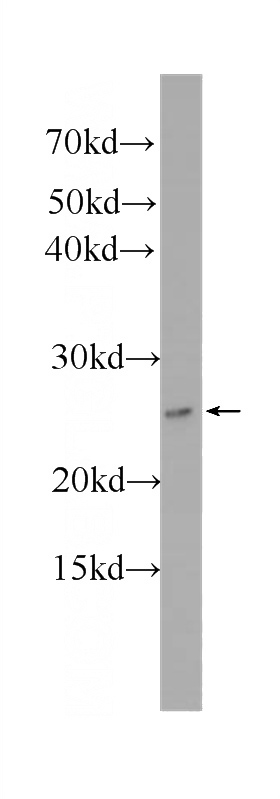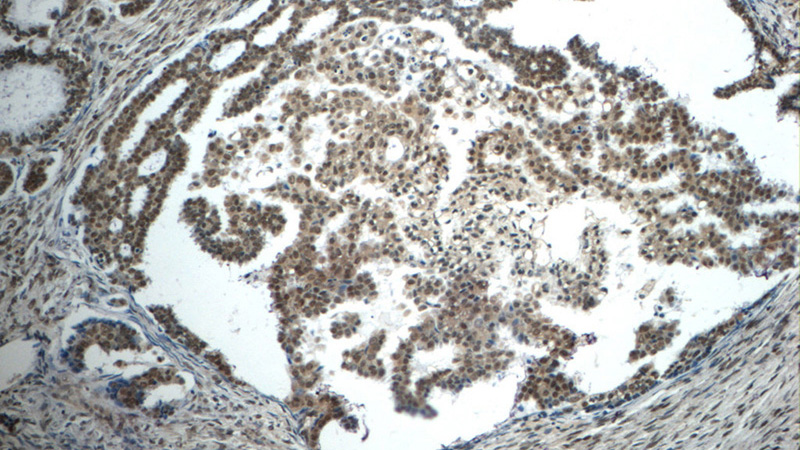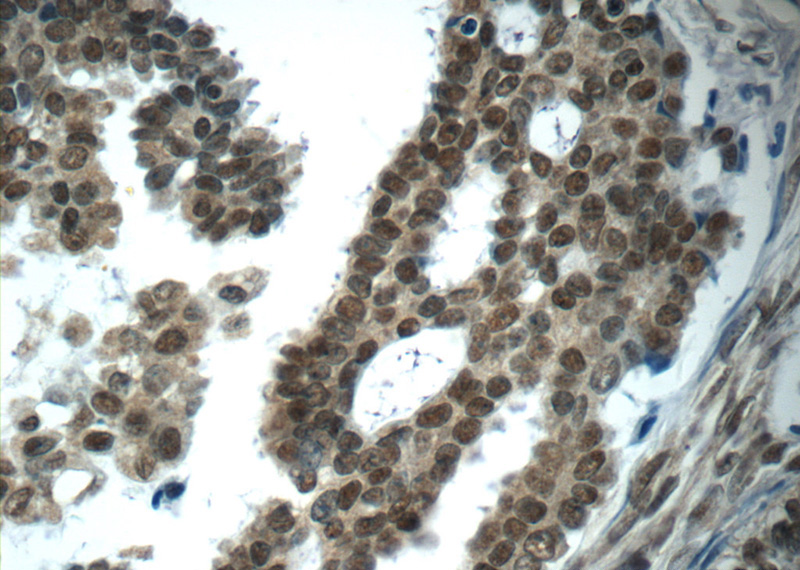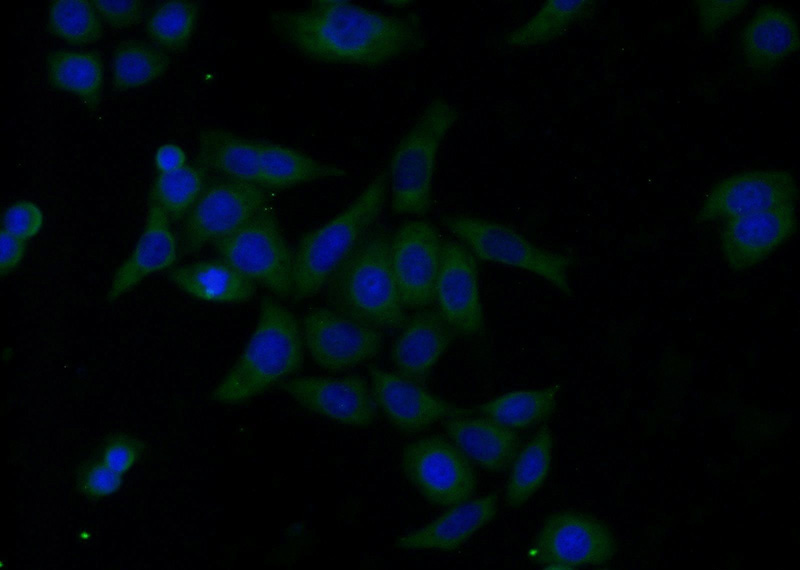-
Product Name
ubiquitin antibody
- Documents
-
Description
ubiquitin Mouse Monoclonal antibody. Positive IHC detected in human ovary tumor tissue, human breast cancer tissue, human pancreas tissue. Positive IF detected in HeLa cells. Positive WB detected in HeLa cells. Observed molecular weight by Western-blot: 25 kDa
-
Tested applications
ELISA, IF, WB, IHC
-
Species reactivity
Human; other species not tested.
-
Alternative names
FLJ25987 antibody; Polyubiquitin B antibody; UBB antibody; ubiquitin antibody; ubiquitin B antibody
-
Isotype
Mouse IgG1
-
Preparation
This antibody was obtained by immunization of ubiquitin recombinant protein (Accession Number: NM_001281718). Purification method: Protein G purified.
-
Clonality
Monoclonal
-
Formulation
PBS with 0.02% sodium azide and 50% glycerol pH 7.3.
-
Storage instructions
Store at -20℃. DO NOT ALIQUOT
-
Applications
Recommended Dilution:
WB: 1:500-1:5000
IHC: 1:20-1:200
IF: 1:10-1:100
-
Validations

HeLa cells were subjected to SDS PAGE followed by western blot with Catalog No:107655(ubiquitin Antibody) at dilution of 1:1000

Immunohistochemistry of paraffin-embedded human ovary tumor tissue slide using Catalog No:107655(ubiquitin Antibody) at dilution of 1:50 (under 10x lens)

Immunohistochemistry of paraffin-embedded human ovary tumor tissue slide using Catalog No:107655(ubiquitin Antibody) at dilution of 1:50 (under 40x lens)

Immunofluorescent analysis of HeLa cells using Catalog No:107655(ubiquitin Antibody) at dilution of 1:25 and Alexa Fluor 488-congugated AffiniPure Goat Anti-Mouse IgG(H+L)
-
Background
Ubiquitin B (UBB) is a member of ubiquitin family, one of the most conserved proteins known. Ubiquitin B is required for ATP-dependent, non-lysosomal intracellular protein degradation of abnormal proteins and normal proteins with a rapid turnover. Ubiquitin B is covalently bound to proteins to be degraded, and presumably labels these proteins for degradation. Ubiquitin also binds to histone H2A in actively transcribed regions but does not cause histone H2A degradation, suggesting that ubiquitin is also involved in regulation of gene expression.When polyubiquitin is free (unanchored-polyubiquitin), it also has distinct roles, such as in activation of protein kinases, and in signaling. This gene consists of three direct repeats of the ubiquitin coding sequence with no spacer sequence. Consequently, the protein is expressed as a polyubiquitin precursor with a final amino acid after the last repeat. Aberrant form of this protein has been noticed in patients with Alzheimer's and Down syndrome. Interestingly ubiquitin also becomes covalently bonded to many types of pathological inclusions which appear to be resistant to normal degradation.
-
References
- Bertolin G, Jacoupy M, Traver S. Parkin maintains mitochondrial levels of the protective Parkinson's disease-related enzyme 17-β hydroxysteroid dehydrogenase type 10. Cell death and differentiation. 22(10):1563-76. 2015.
Related Products / Services
Please note: All products are "FOR RESEARCH USE ONLY AND ARE NOT INTENDED FOR DIAGNOSTIC OR THERAPEUTIC USE"
